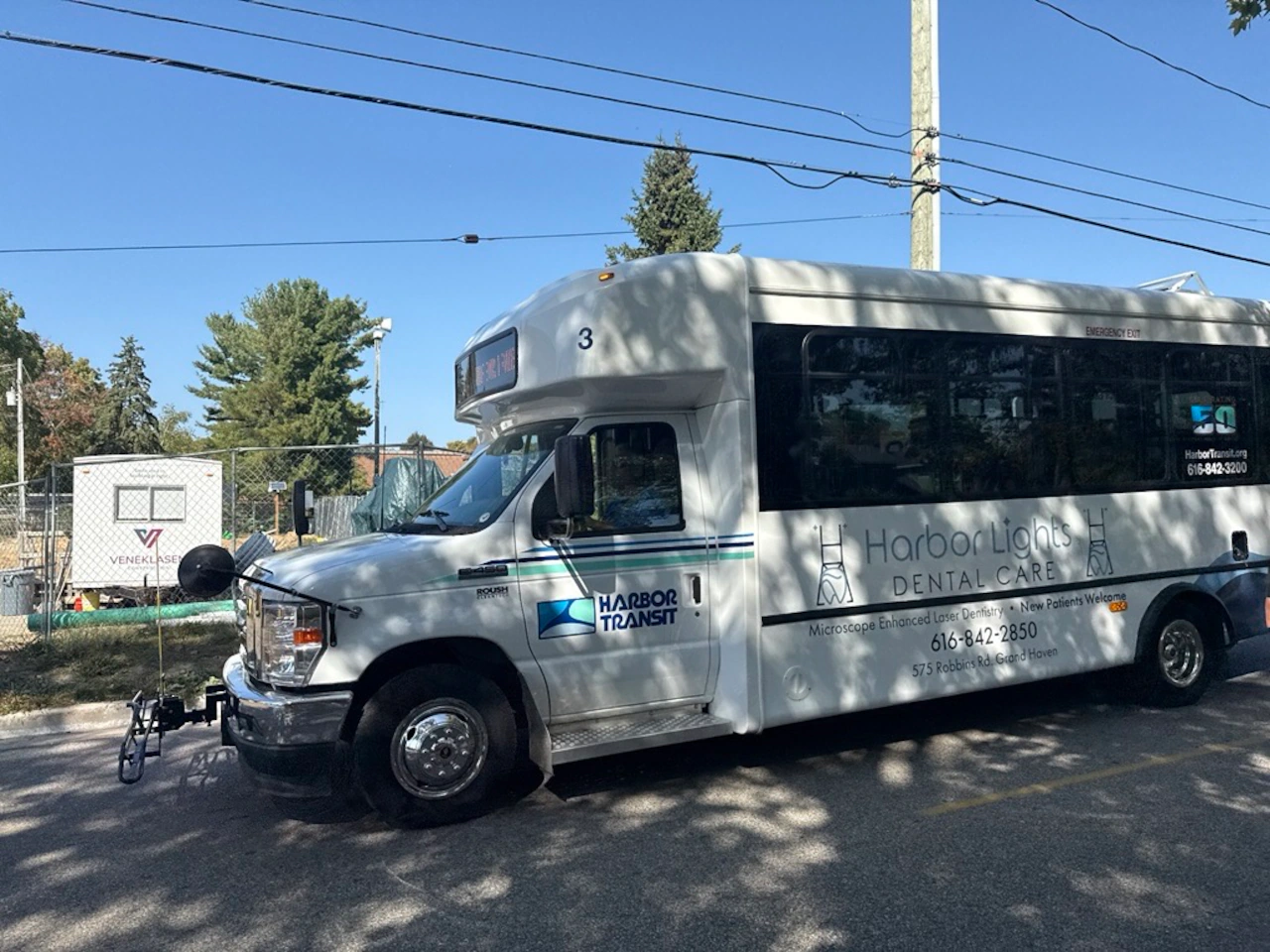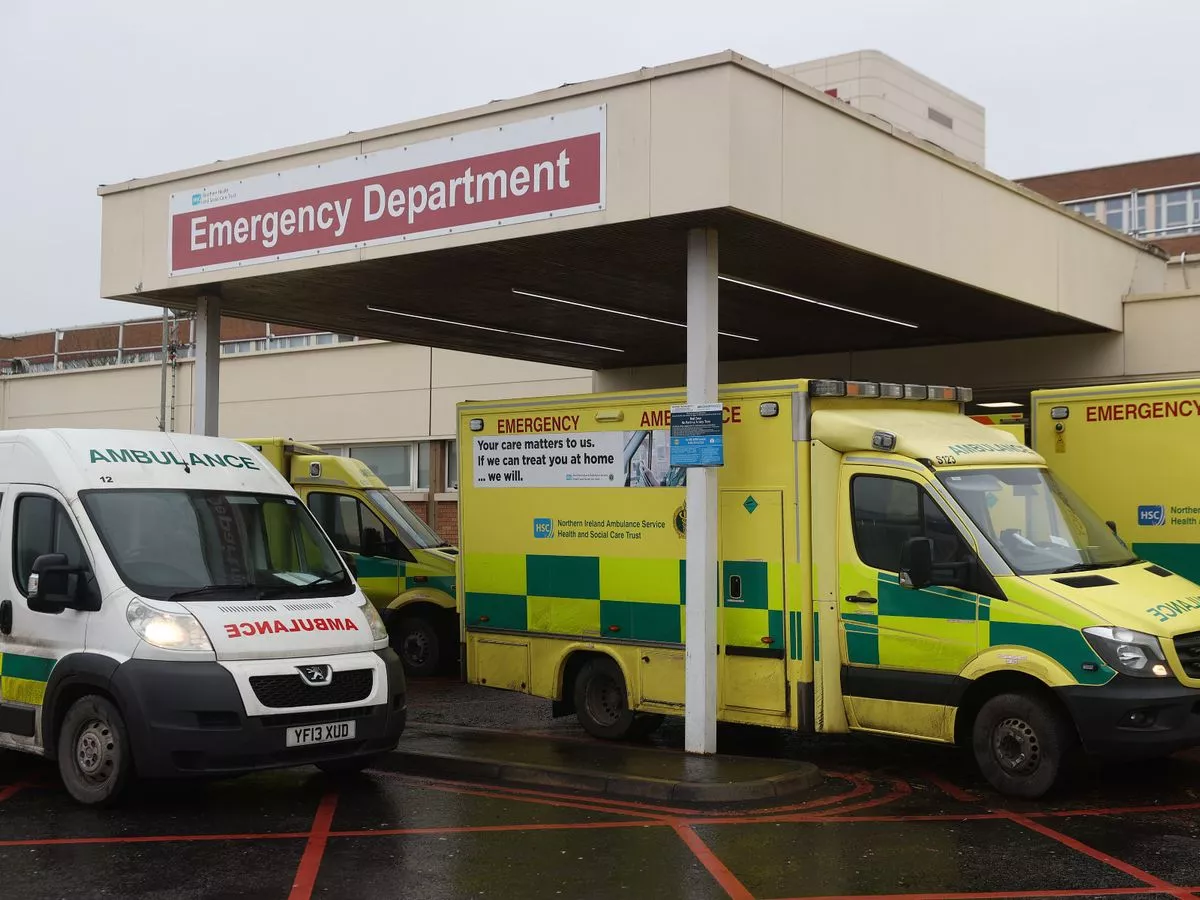
GRAND HAVEN TOWNSHIP, MI – A plot of land has been approved for rezoning to accommodate a new operations center for the local transit authority.
The Grand Haven Township Board approved the rezoning of 14623 172nd Avenue from Agricultural (AG) to Regional Commercial (C-2) for the Harbor Transit Multi-Modal Transportation System during its Monday, Sept. 22 meeting.
“We’re excited that this project is going to allow us to continue to grow and service the community,” said Scott Borg, executive director of Harbor Transit.
The bus system has serviced the cities/townships of Grand Haven, Spring Lake and Ferrysburg for 50 years.
It costs a rider $1.50 per ride, and 75 cents for people 60 years old or older, or who have a disability.
The transit system is a “demand response service,” Borg said, meaning they take riders from one point to another within their service area, rather than following a scheduled route.
Rides can be scheduled in advance and, when called, are able to pick up within an hour, Borg said.
This week was the board’s second vote on the zoning change, making it official and allowing the project to move forward.
Construction is expected to begin March 2026 and be completed by April 2027.
The property is about 30 acres of forest and a vacant residence.
It’s located between the Aldi store, Speedway gas station and Walmart store on 172nd Avenue, according to township records.
“We did a study and most of our rides end up going in that area anyway,” Borg said, referencing the busy area that houses several grocery stores, gas stations and restaurants.
“It’s a good location for us to be able to grow and eventually expand our services to potentially Holland, or maybe to Grand Valley State University at some point in the future.”
Harbor Transit was awarded a $16.2 million federal grant last year to fund the design and construction of a new operations center
The upgrades will outfit the system with fueling equipment, vehicle maintenance infrastructure, more office space and administration and workforce training facilities for regional transit providers.
The project was previously planned to help Harbor Transit transition to a zero emissions fleet, including charging equipment, electric vans and charging stations, but Borg said the company is choosing to wait until “electrification gets more advanced.”
The current 29 bus fleet contains both gasoline and propane powered vehicles – Borg said the company is leaning towards propane.
“It runs very clean, it’s a cheap fuel,” Borg said.
Funding for the project comes from the Federal Transit Administration’s Bus and Bus Facilities grant program.
The state is expected to provide a 20% match for the federal grant, or $3.2 million.
An additional $1.5 million was previously set aside for this capital project by the Harbor Transit Board.
The current facility is at 440 N. Ferry St. in Grand Haven. It is about 31,000 square feet.
“We don’t have enough office space, we don’t have enough garage space to house the current number of buses we have,” Borg said. “It’ll be a good change for us.”
The new facility will be roughly 47,350 square feet and able to store 47 buses.
“It’s going to be much larger,” Borg said. “Building this allows for growth.”
The majority of Harbor Transit riders are seniors and people with disabilities, Borg said.
“This allows them to the mobility to get around our service area, as well as get up to the Muskegon area,” Borg said.
There is a meeting point at Trinity Health Medical Center at Lakes Village, 6401 Prairie St. in Norton Shores, near the Lakes Mall and the new Costco store.
From there, riders can access the Muskegon Area Transit System bus route or the Go Bus.
Riders coming from the Tri-Cities will often access Muskegon’s medical facilities or community college, while riders from Muskegon will often come into the Grand Haven area for work or school, Borg said.



